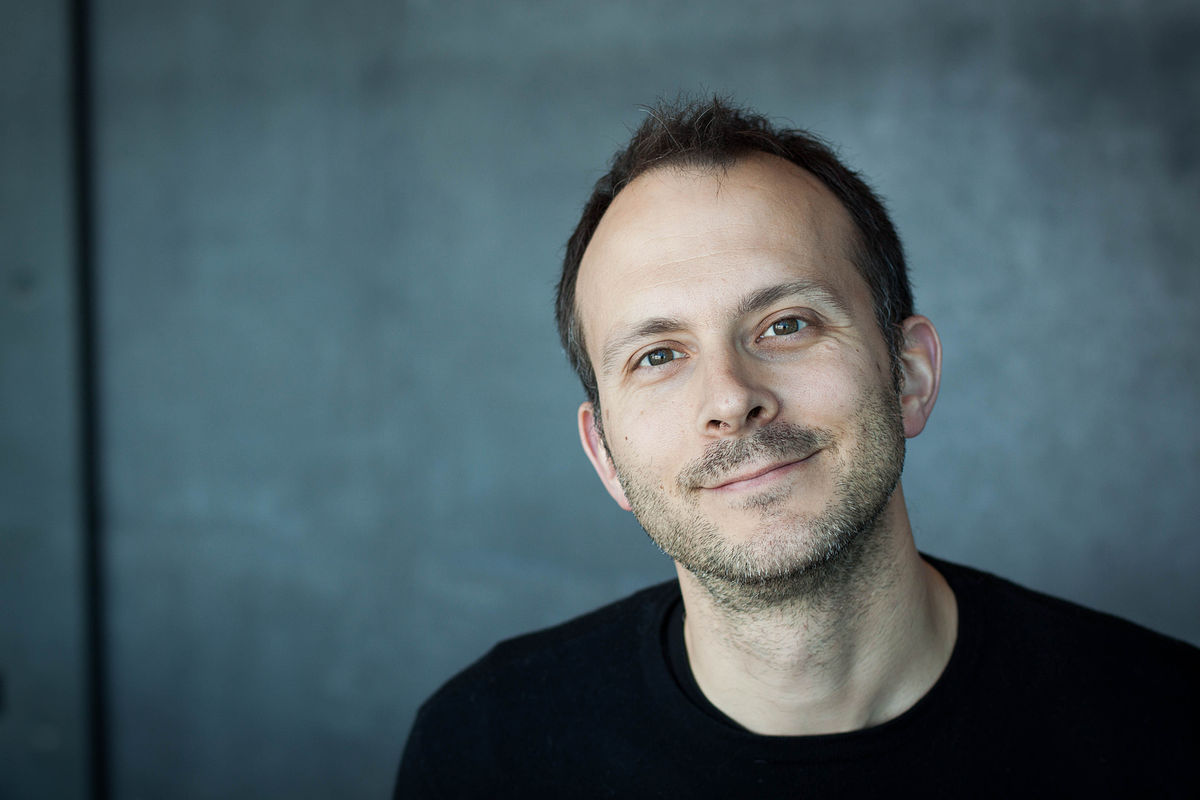 I’m preparing Episode 61 of The Extraordinary Business Book podcast, which will go live on Monday (I’m sure you know that, since you’re probably subscribed on iTunes, I just mention it in passing). It’s a conversation with Tim Harford, The Undercover Economist, presenter of More or Less on Radio 4, and author of Messy. And I thought this story deserved a little blog all of its own.
I’m preparing Episode 61 of The Extraordinary Business Book podcast, which will go live on Monday (I’m sure you know that, since you’re probably subscribed on iTunes, I just mention it in passing). It’s a conversation with Tim Harford, The Undercover Economist, presenter of More or Less on Radio 4, and author of Messy. And I thought this story deserved a little blog all of its own.
Tim Harford: I begin the book with a story of a concert that went very badly wrong. It was being played by the jazz musician Keith Jarrett and he had been booked to appear in the Cologne Opera House in 1975. He was still quite a young man, but not as young as the concert promoter who was just this kid. She was called Vera Brandes, she was the youngest concert promoter in Germany, she’s 17 years old but she just loves jazz. Buoyed by pure enthusiasm, she’s managed to persuade the Cologne Opera House and Keith Jarrett to come together and to do this gig and it’s going to be completely improvised because that’s the way Keith Jarrett works. He’s going to sit down on the piano and he’ll just play.
Me: I’ve got, “What can possibly go wrong?” running through my head, just listening to this.
Tim Harford: Well, yes, and 1400 people were going to show up. It’s a late night concert and it’s a packed house and it’s a huge auditorium and even Keith Jarrett has never played one of these improvised gigs so low in front of such a big audience. Well, in answer to the question what could possibly go wrong, well, what could go wrong is the piano removal team at the Cologne Opera House, slightly disengaged, not very interested in teenage girls, not very interested in jazz, deliver the wrong piano. When Keith Jarrett shows up a couple of hours before the concert, he discovers that the instrument he’s dealing with, the keys are sticking, they’re out of tune, the upper registry is very harsh, it doesn’t sound good because the felt’s worn away. The piano’s a rehearsal model which means it’s far too small.
You can’t actually create enough sound to fill the auditorium. The pedals don’t work. The piano is unplayable, and of course Keith Jarrett says, “I will not play it. Get a new piano,” but Vera Brandes can’t, there’s no time. It’s Friday afternoon in Germany, everyone’s gone home, and so the only thing she can do is just beg him to try. He looks at this kid and pictures her being ripped apart by 1400 jazz fans later in the evening and thinks, “Well, she screwed up but she doesn’t deserve that. I have to give it a go.” He walks out onto the stage with this really bad piano, sits down in front of 1400 people and he produces the performance of a lifetime.
It’s an absolutely amazing piece of music, and we now understand why the bad piano produced the good piece of music. He wasn’t overcoming the obstacle. The obstacle was actually provoking him to play in a different way, in a way that he hadn’t considered playing, make a different sort of choice of notes, to hit the instrument much, much harder than he normally would because he’s trying to create the volume, to avoid the upper keys which makes everything sound very soothing and relaxing and yet he’s bashing away at it so there’s this tension there and it creates this wonderful piece of music. That’s an opening example of messiness leading to a creative solution and the argument of the early chapters of the book, really the first three chapters of the book, is this is not a fluke.
I mean, Keith Jarrett’s a genius but this is not a fluke. Often when you have to deal with frustrations and distractions and difficult people and awkward strangers or awkward deadlines, very often that provokes a creative response, and there are really two basic reasons why that is. Actually Brian Eno, wonderful producer and composer who worked with David Bowie and Coldplay and U2 and who talked to me at length for this book, he was very generous with his time. Eno, I think, put his finger on both reasons why this happens. Number one, Brian said if you want to finish somewhere different then start somewhere different. The most obvious way to start somewhere different is if you just have a difficult situation, and you’re not starting where you would have habitually have chosen to start, so you start with a bad piano or you start with a difficult journey because the mode of transport you were going to use is down, or whatever.
You start somewhere new and of course you will find new approaches and new solutions, and this isn’t just some mystical idea. This is what computers do when they’re solving complex problems. They throw randomness into the algorithms because it makes the algorithms work better. That’s the first thing. The second thing Eno said is the friend of creative work is attention and the enemy of creative work is boredom. If you are in your tidy routines, you’re going to get bored and if you’re bored, you’re not going to think creatively. You might say, “Well, in that case, why on earth would you stick to your tidy routines?” But the answer is well you stick to your tidy routines because they make you feel very comfortable and because in many ways, they’re working, but they’re slowly lulling you to sleep creatively, so you don’t think of new ideas.
These two things, you’re forced to try something completely new because the old solution cannot work, and second you’re in a fresh situation and a fresh situation is threatening and new and it means you really pay attention. Those two things together I think produce the creative response.
So next time things go badly wrong, give thanks that you’re being given the opportunity to start somewhere different and trigger a creative response.
